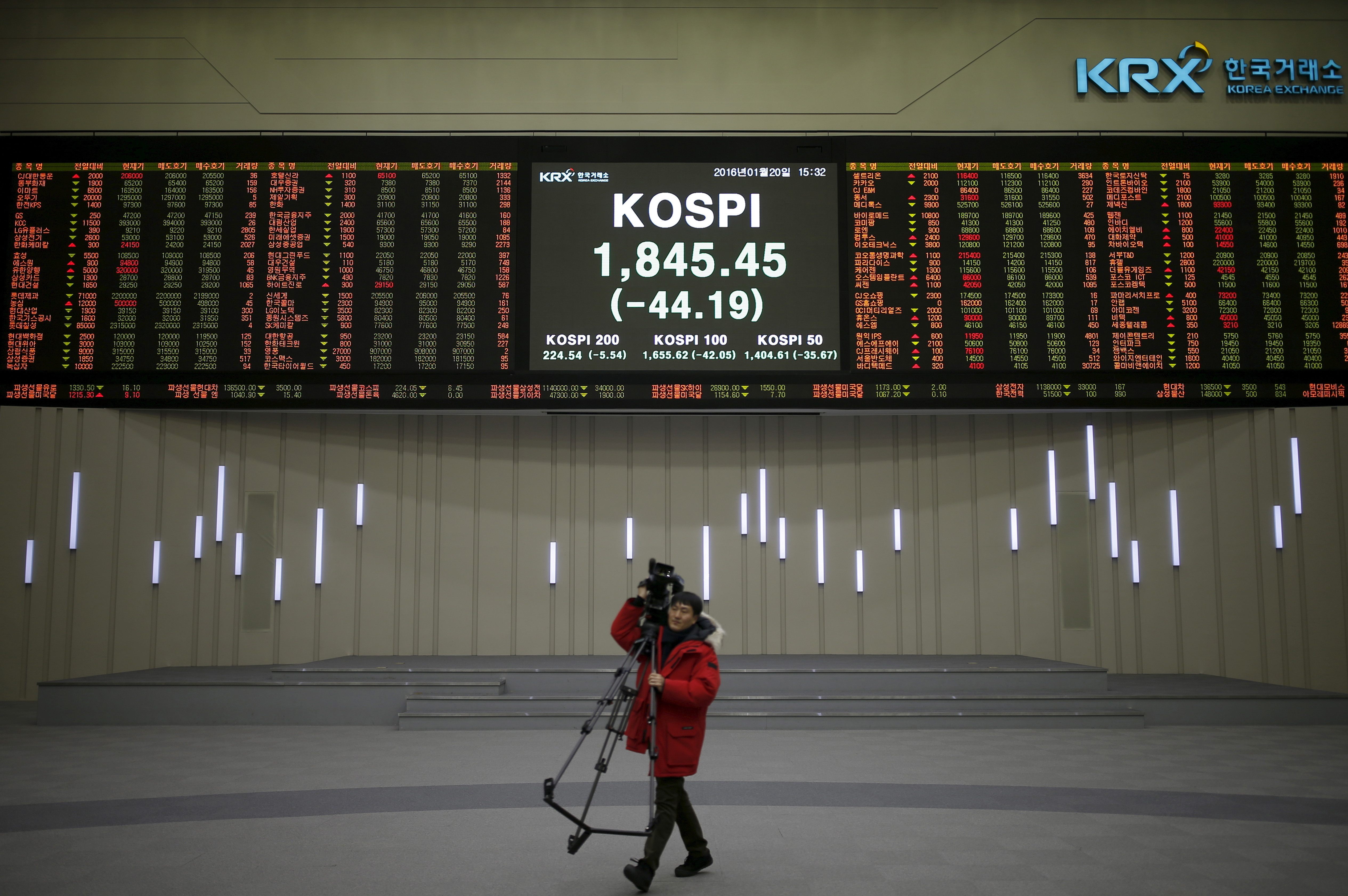
A journalist walks past an electronic board of the Korea Composite Stock Price Index (KOSPI) at the Korea Exchange (KRX) in Seoul, South Korea January 20, 2016, REUTERS/Kim Hong-Ji/File Photo Get license rights
Seoul, Nov. 5 (Reuters) – South Korea will reintroduce a ban on short-selling stocks from Monday until June to improve a “level playing field” for retail and institutional investors, financial officials said on Sunday.
The ban was lifted in May 2021 for trades involving stocks of large market capitalization companies included in the KOSPI200 and KOSDAQ150 stock price indices. This restriction continues for most other stocks.
Short-selling involves selling borrowed shares at a lower price and pocketing the difference.
“The aim is to fundamentally ease the ’tilted playing field’ between institutional and retail investors,” Financial Services Commission (FSC) chairman Kim Joo-hyun told a news conference.
“Amid continued uncertainty in the financial markets, major foreign investment banks have been practicing unfair trade practices… and we have determined that it is impossible to maintain fair trade discipline,” Kim said.
The FSC will review market activity in June to decide whether significant progress has been made to allow the ban to be lifted, he said.
Last week, the regulator said it would set up a panel of investigators to investigate short selling by foreign investment banks for illegal activities known as naked short selling.
Naked short selling — in which an investor short-sells shares without first borrowing or deciding whether to borrow — is prohibited in South Korea.
In October the Financial Supervisory Service determined that two Hong Kong-based investment banks had engaged in naked short-selling transactions worth 40 billion won ($29.58 million) and 16 billion won, respectively.
Earlier this year, the regulator fined five foreign firms, including Credit Suisse, for naked short selling.
Officials and market watchers have cited uncertainty over the short-selling ban as among the factors that influential index provider MSCI needs to address in order to upgrade South Korea to developed-market status.
Reported by Jack Kim; Editing by Michael Perry and Christopher Cushing
Our Standards: Thomson Reuters Trust Principles.

/cloudfront-us-east-2.images.arcpublishing.com/reuters/O24J62WOPFKR7J35B4HVXD6YWY.jpg)